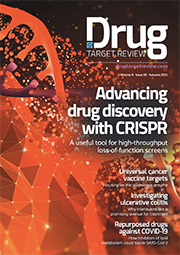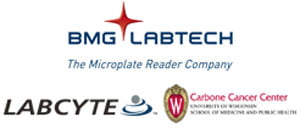Cell-based and biochemical high-throughput screening in 1536-well plates
ABOUT THIS WEBINAR
The Small Molecule Screening Facility (SMSF) at the University of Wisconsin Madison is a comprehensive high-throughput screening (HTS) centre that offers services to academic and industry clients worldwide. The facility has an in-house chemical library of >450,000 compounds that are available for screening to our customers.
In this webinar, speakers Dr. Gene Ananiev, Dr. Carl Peters and Dr. Iain Russell discussed two projects. In one of the projects they demonstrated the creation of a robust FMR1-Nluc reporter hiPSC line by knocking in a Nano luciferase (Nluc) gene into the endogenous human FMR1 gene using the CRISPR/Cas9 genome editing method. We confirmed that luciferase activities faithfully report FMR1 gene expression levels and showed that neural progenitor cells derived from this line could be optimised for high-throughput screening.
The second project focused on how antibiotic-resistant bacterial infections are increasingly prevalent worldwide, and how there is an urgent need for novel classes of antibiotics capable of overcoming existing resistance mechanisms. In this project, nine potent and selective inhibitors produced concentration-response curves with IC50 values of <40 μM, and two compounds were observed to directly bind to PriA, demonstrating the success of this screen strategy.
Here speakers presented two examples of HTS in 1536-well plates, a screen for protein-protein interactions and a cell-based luciferase reporter assay. Using a miniaturised AlphaScreen we were able to drastically reduce cost and increase throughput for protein-protein interaction HTS. For cell-based HTS they discussed screening for activators of gene-expression using iPSC derived, neural progenitor cells, engineered with a Nano-Luciferase reporter. They presented methodology for assay miniaturisation and optimisation in 1536-well format. We will discuss the impact of the above on academic HTS endeavours at our facility.
The rest of this content is restricted - login or subscribe free to access


Why subscribe? Join our growing community of thousands of industry professionals and gain access to:
- quarterly issues in print and/or digital format
- case studies, whitepapers, webinars and industry-leading content
- breaking news and features
- our extensive online archive of thousands of articles and years of past issues
- ...And it's all free!
Click here to Subscribe today Login here
Related topics
Assays, Cell-based assays, Drug Discovery, Drug Discovery Processes, High Throughput Screening (HTS), Microplate readers, Screening, Small molecule
Related organisations
BMG Labtech GmbH, University of Wisconsin Madison (Carbon Cancer Center)




